Welcome, Richard! He was the most recent person to my speculative fiction interview post, and I’m looking forward to sharing his answers with all of you today.
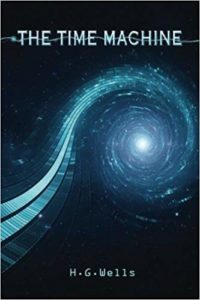 What was the first speculative story you ever remember reading?
What was the first speculative story you ever remember reading?
H.G. Wells’ The Time Machine. It was one of the first ‘real’ books I read as a child. Even at that age, I could tell at that point, H.G. didn’t think much of mankind. Even today as I read the news, who could blame him.
Who is your favourite author? Why?
This is the kind of question that will get you a different answer every time you ask me. I have favorite authors for different reasons. So it’s difficult for me to rank one above another. I’ve often mentioned Christopher Moore and Ray Bradbury, but today I think I’ll give a vote for Richard Russo. Whenever I read his books, I experience that common mixture of awe and envy.
He manages to squeeze humor out of everyday people in both subtle and slapstick aspects. That isn’t easy. His books are definitely worth reading for any author looking for examples where character drives humor. And, now that I think of it – I guess they’re not quite under the heading of speculative fiction. Sorry about that.
What do you like most about the genre(s) you read?
I tend to read fantasy, SciFi, humor, and mystery, especially where the last two are mixed with the first two. I like it when my brain is stimulated, whether it be by challenging my imagination and preconceived notions, or by a clever plot with plausible twists and turns. My selection in entertainment always leans towards escapism. I can be strongly moved by real-life stories, but escapist fare allows me to relax and let down my guards. My mind is more apt to wander along the possibilities of what if?
More and more authors seem to be writing cross-genre stories these days. How do you feel about this trend?
 Love it! As I mentioned, mix humor and/or mystery into a SciFi or Fantasy, then lead me to the cash register. I think it’s apt to call it a trend, or better yet a growing trend, since cross-genre stories have been around for quite some time. I immediately think of Isaac Asimov’s Robot Trilogy which featured a human detective learning to work with a robot partner – classic SciFi reflecting on human societal structures. I mentioned Christopher Moore earlier. He can take a mythology, shake it upside down and have you laughing all the way through.
Love it! As I mentioned, mix humor and/or mystery into a SciFi or Fantasy, then lead me to the cash register. I think it’s apt to call it a trend, or better yet a growing trend, since cross-genre stories have been around for quite some time. I immediately think of Isaac Asimov’s Robot Trilogy which featured a human detective learning to work with a robot partner – classic SciFi reflecting on human societal structures. I mentioned Christopher Moore earlier. He can take a mythology, shake it upside down and have you laughing all the way through.
If you could name a pet after one character, which character would you choose? Why?
I had a cat I named Merlin when I live in Brooklyn. I wasn’t allowed to have pets in our tiny apartment, and I found him when he was a little less than one month old (his mother was hit by a car). So I fed him and gave him a safe place in our small yard. As he grew, he’d have this habit of vanishing for a day or two only to suddenly show up right behind me, much to my surprise and my friends. One of them remarked, I see he’s done his disappearing act again, and so I started calling him Merlin. Two years after, we moved to a house New Jersey and I was allowed to add him to our family. He still did the vanishing thing, and I had to reassure my parents he’d quietly be back in a couple of days.
What fictional world would you never want to visit?
Definitely not Westeros, (Easteros or any of the os’s). Way too violent, filthy and oppressive, which is to say, a legitimately and lovingly crafted Medieval world.
What fictional world would you want to visit?
Tough one, but I think I’ll go with Perelandra. CS Lewis’ version of Eden on Venus. If not there, Asimov’s Solaria (The Naked Sun), as I do enjoy solitude and unpopulated spaces.
Sharing spoilers with people who haven’t read the book or seen the film/show is a hot topic on Twitter and across many fandoms. How do you feel about sharing or overhearing spoilers?
I’m not a fan of sharing spoilers (at the very least don’t make it the headline). However, there is an unknown point when you wonder, is it okay for me to discuss details now? I personally avoid writing them whenever possible, which means I have to spend more time constructing a review that can provide enough information without giving away key elements.
Which series do you think should be made into a TV show or film next?
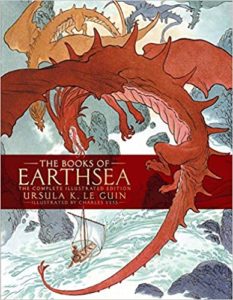 I wouldn’t want to restrict it to series. One substantial book could make a decent season or even two (e.g. The Handmaid’s Tale). Although in the opposite direction, they squeezed the Earthsea books down into one animation. A good animation, but I wasn’t happy. I would have voted for that. It goes without saying “if done correctly”, but I would love to see Asimov’s Foundation trilogy, or even better, Zelazny’s Nine Princes in Amber. By the way, I heard rumor that his Lord of Light has been optioned.
I wouldn’t want to restrict it to series. One substantial book could make a decent season or even two (e.g. The Handmaid’s Tale). Although in the opposite direction, they squeezed the Earthsea books down into one animation. A good animation, but I wasn’t happy. I would have voted for that. It goes without saying “if done correctly”, but I would love to see Asimov’s Foundation trilogy, or even better, Zelazny’s Nine Princes in Amber. By the way, I heard rumor that his Lord of Light has been optioned.
Which TV show or film do you think should be turned into a book?
Ooh. The problem with good series is that they don’t often age well during their run. My mind first jumped to Lost, but then I thought, “Well, maybe the first season.” So then, let’s go with Showtime’s Penny Dreadful, but with an ending that isn’t rushed by sideswiping notice of cancellation.
Bonus Questions
What is the most unusual or interesting way you’ve come up with an idea for one of your creative works?
There are two predominant ways ideas come to mind. The first is, I start with a broad concept which will bounce around in my brain for days without details. If enough bits of ideas (notably, plot elements) attach to it, I start to think about it more carefully. For instance, the other day I was thinking, “The most popular superhero stories are in an illustrated format: comic books, graphic novels. I wonder what it would be like to write a straight-up superhero novel.” I know there are quite a number out there, so if I also think of an interesting hook for it, I’m going to put it on my “to write” list. The currently book I’m writing falls into this category. I was thinking about one of my favorite Greek Myths and realized it hasn’t, to my knowledge, been done true to the original tale. I then considered if I could write it as a comedy as well, and off I went.
The second way ideas come about, strangely enough, is a bit of dialog pops into my head. Sometimes it’s a few humorous lines, others a discussion on a deep topic (My Dinner with Atilla the Hun?). I then start to think about the characters and circumstances surrounding this, which leads me to explore those characters more. If I like the complexity of characters (a.k.a. dolls, action-figures) I’m developing, I begin to consider setting and potential plots. It’s definitely a bottom-up process, and is the way I wrote my first book.

Gif description: black and white image of a lightbulb turning on. Black lines appear around it to symbolize the light.
Sometimes characters don’t do what their creators want them to do. If this has ever happened to you, how did you deal with it?
They know better. It’s their story, so who am I to argue. Kidding aside, I feel when this happens, it’s your subconscious mind making connections and play-acting on a nonverbal (right-brain?) level, that percolates up to your conscious mind where you realize it does make more sense to go that route.
What is your favourite trope?
The anti-hero. More specifically, the Trickster archetype. Give me a golden-age Bugs Bunny cartoon any day. I’m drawn to Tricksters and love writing their dialog. The best thing, plot-wise, is that they can cause change like the gentle puff of air on a house of cards, or with all the subtlety of a boulder dropped into a koi pond.
What tropes do you try to avoid in your stories?
The twist for the sake of a twist. If I’m going to kill off a main character, or a beloved side character, it had better be for a good reason from a storytelling point of view; not as a cheap ploy to shock (yank) the reader. I think Ned Stark in Game of Thrones is a good example of the former. He’s put in the foreground as a main character, but his death both causes a chain of critical events and moves other characters to the foreground.
About Richard
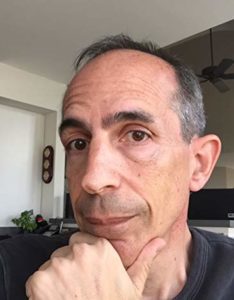 Richard L Pastore is the author of the comedy-fantasy, The Devil and the Wolf (available on Amazon). His newest project is tentatively titled: Perseus Kills His Grandfather.
Richard L Pastore is the author of the comedy-fantasy, The Devil and the Wolf (available on Amazon). His newest project is tentatively titled: Perseus Kills His Grandfather.
Born in Brooklyn New York on a sweltering summer’s day. Richard studied Cognitive Psychology in grad school, which led to a career in User Interface Design. He later switched careers to become a Business Analyst. Although having traveled across the U.S. quite a bit, he feels most at home along the eastern shore of these United States, currently residing in New Jersey.
Be forewarned, should you choose to engage him in a conversation regarding anything food-related – whether it be the history of, growing of, or cooking of – he won’t shut up.


 r/1500isplenty
r/1500isplenty r/Meditation
r/Meditation r/AskFantasy
r/AskFantasy r/AbandonedPorn
r/AbandonedPorn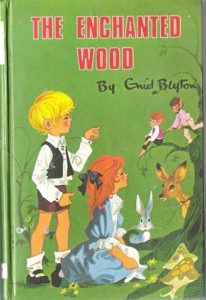 What was the first speculative story you ever remember reading?
What was the first speculative story you ever remember reading?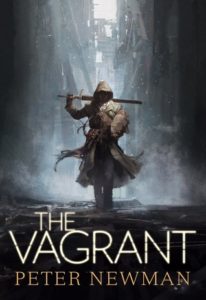 Sharing spoilers with people who haven’t read the book or seen the film/show is a hot topic on Twitter and across many fandoms. How do you feel about sharing or overhearing spoilers?
Sharing spoilers with people who haven’t read the book or seen the film/show is a hot topic on Twitter and across many fandoms. How do you feel about sharing or overhearing spoilers?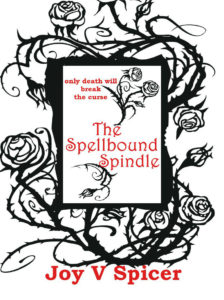 What is the most unusual or interesting way you’ve come up with an idea for one of your creative works?
What is the most unusual or interesting way you’ve come up with an idea for one of your creative works? About Joy: Originally from Malaysia, I’ve lived more than half my life in the UK. I started writing as a way to alleviate the boredom of work, hiding my notebook by the till, before realising how much I enjoy creating stories. My two sons still live with me and they make me proud and inspire me (sometimes make me jealous!) with their prodigious imaginations.
About Joy: Originally from Malaysia, I’ve lived more than half my life in the UK. I started writing as a way to alleviate the boredom of work, hiding my notebook by the till, before realising how much I enjoy creating stories. My two sons still live with me and they make me proud and inspire me (sometimes make me jealous!) with their prodigious imaginations. Say hello to Matthew! He signed up for my
Say hello to Matthew! He signed up for my  What fictional world would you never want to visit?
What fictional world would you never want to visit?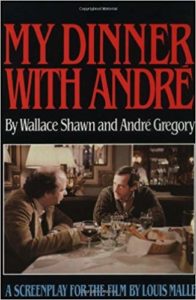 Which TV show or film do you think should be turned into a book?
Which TV show or film do you think should be turned into a book?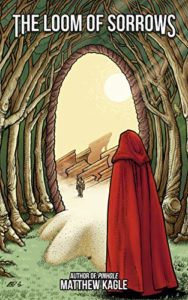 About Matthew: Matthew Kagle was born in 1972 and raised by his grandparents after his parents died in a car crash.
About Matthew: Matthew Kagle was born in 1972 and raised by his grandparents after his parents died in a car crash.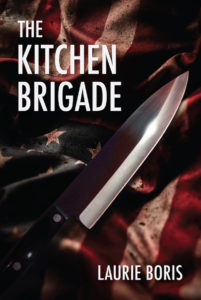 What is the most unusual or interesting way you’ve come up with an idea for one of your creative works?
What is the most unusual or interesting way you’ve come up with an idea for one of your creative works?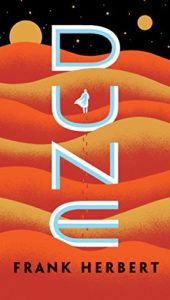 What fictional world would you want to visit?
What fictional world would you want to visit?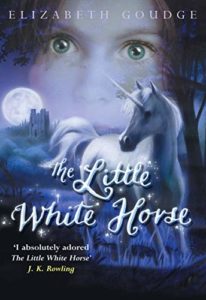 What was the first speculative story you ever remember reading?
What was the first speculative story you ever remember reading?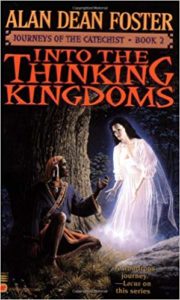 What fictional world would you want to visit?
What fictional world would you want to visit?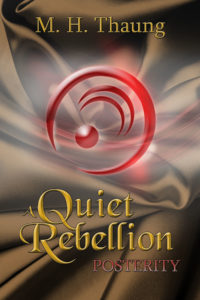 I don’t think any of my story ideas have had unusual sources of inspiration. Random generators are pretty helpful – cards and lists that you might use in RPGs or collaborative storytelling.
I don’t think any of my story ideas have had unusual sources of inspiration. Random generators are pretty helpful – cards and lists that you might use in RPGs or collaborative storytelling. About M.H.: M. H. Thaung is a pathologist working in a laboratory in London, UK. It’s been over ten years since she cut up a dead body. She started writing for fun about four years ago, and since then it’s turned into an obsession—er, major hobby. She recently released A Quiet Rebellion: Posterity, the final book in her SF adventure/mannerpunk trilogy.
About M.H.: M. H. Thaung is a pathologist working in a laboratory in London, UK. It’s been over ten years since she cut up a dead body. She started writing for fun about four years ago, and since then it’s turned into an obsession—er, major hobby. She recently released A Quiet Rebellion: Posterity, the final book in her SF adventure/mannerpunk trilogy. 
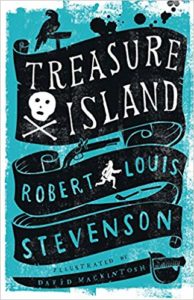
 Which series do you think should be made into a TV show or film next?
Which series do you think should be made into a TV show or film next?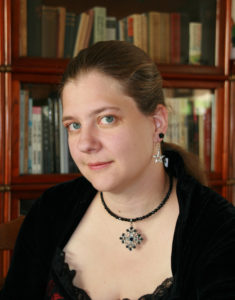 About Chris:
About Chris: Say hello to Leah! She responded to my call for
Say hello to Leah! She responded to my call for  Who is your favourite author? Why?
Who is your favourite author? Why?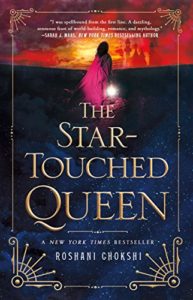 What fictional world would you want to visit?
What fictional world would you want to visit? About Leah:
About Leah: What was the first speculative story you ever remember reading?
What was the first speculative story you ever remember reading? Love it! As I mentioned, mix humor and/or mystery into a SciFi or Fantasy, then lead me to the cash register. I think it’s apt to call it a trend, or better yet a growing trend, since cross-genre stories have been around for quite some time. I immediately think of Isaac Asimov’s Robot Trilogy which featured a human detective learning to work with a robot partner – classic SciFi reflecting on human societal structures. I mentioned Christopher Moore earlier. He can take a mythology, shake it upside down and have you laughing all the way through.
Love it! As I mentioned, mix humor and/or mystery into a SciFi or Fantasy, then lead me to the cash register. I think it’s apt to call it a trend, or better yet a growing trend, since cross-genre stories have been around for quite some time. I immediately think of Isaac Asimov’s Robot Trilogy which featured a human detective learning to work with a robot partner – classic SciFi reflecting on human societal structures. I mentioned Christopher Moore earlier. He can take a mythology, shake it upside down and have you laughing all the way through. I wouldn’t want to restrict it to series. One substantial book could make a decent season or even two (e.g. The Handmaid’s Tale). Although in the opposite direction, they squeezed the Earthsea books down into one animation. A good animation, but I wasn’t happy. I would have voted for that. It goes without saying “if done correctly”, but I would love to see Asimov’s Foundation trilogy, or even better, Zelazny’s Nine Princes in Amber. By the way, I heard rumor that his Lord of Light has been optioned.
I wouldn’t want to restrict it to series. One substantial book could make a decent season or even two (e.g. The Handmaid’s Tale). Although in the opposite direction, they squeezed the Earthsea books down into one animation. A good animation, but I wasn’t happy. I would have voted for that. It goes without saying “if done correctly”, but I would love to see Asimov’s Foundation trilogy, or even better, Zelazny’s Nine Princes in Amber. By the way, I heard rumor that his Lord of Light has been optioned.
 Richard L Pastore is the author of the comedy-fantasy, The Devil and the Wolf (available on Amazon). His newest project is tentatively titled: Perseus Kills His Grandfather.
Richard L Pastore is the author of the comedy-fantasy, The Devil and the Wolf (available on Amazon). His newest project is tentatively titled: Perseus Kills His Grandfather. What was the first speculative story you ever remember reading?
What was the first speculative story you ever remember reading?
 About: Tammy Schoch is a psychiatric nurse who lives in the United States with her husband. She taught her children to love science fiction, and they taught her the importance of avoiding spoilers on social media.
About: Tammy Schoch is a psychiatric nurse who lives in the United States with her husband. She taught her children to love science fiction, and they taught her the importance of avoiding spoilers on social media. 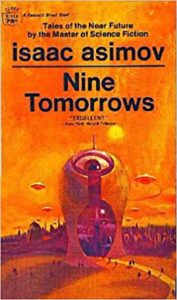 What was the first speculative story you ever remember reading?
What was the first speculative story you ever remember reading?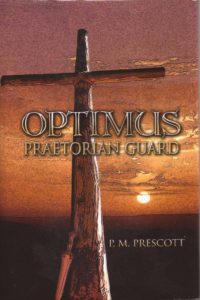 More and more authors seem to be writing cross-genre stories these days. How do you feel about this trend?
More and more authors seem to be writing cross-genre stories these days. How do you feel about this trend?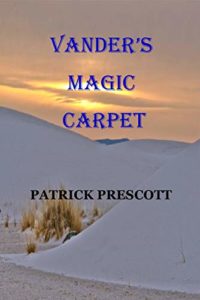 What is the most unusual or interesting way you’ve come up with an idea for one of your creative works?
What is the most unusual or interesting way you’ve come up with an idea for one of your creative works? About Patrick: I’m a retired English/History educator. When I started
About Patrick: I’m a retired English/History educator. When I started